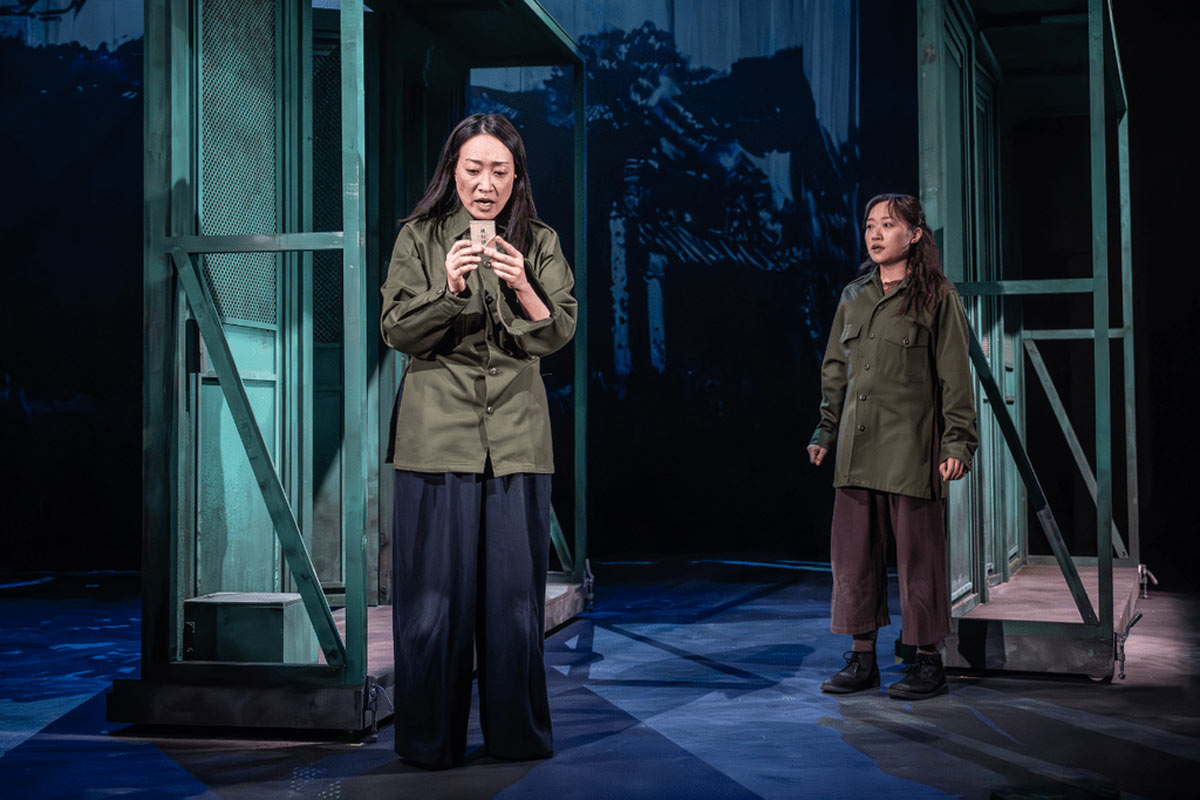We’re in Shanghai in 1935 and shy Li Lin (Millicent Wong) bursts into a theatre seeking safety, to be met with larger than life Lan Ping (Gabby Wong) who is rehearsing lines as Nora in preparation for auditions for a production of A Doll’s House. They strike up a friendship but as time passes their loyalty to one another is tested. Betrayal and abandonment sour matters but as the years pass, they reunite only to part repeatedly as the turmoil of China’s various political factions and ideologies demand unquestioning allegiance and subjugation of self in deference to the Communist Party.
Director Katie Posner maintains a decent pace, largely through deployment of Akhila Krishnan’s excellently rendered video projections which serve to transition the women through key historic milestones and shared moments in their lives. A series of events causes Lan Ping to come to the attention of Chairman Mao and she is renamed Jiang Qing by him as he assumes power and takes her for his wife. Members of the political elite view her with mistrust and she embarks on an enforced period of 30 years abstinence from direct personal involvement in politics. Instead, as Madame Mao she becomes one of the drivers of the Cultural Revolution - a Rottweiler who channels her own bitterly suppressed creative instincts into denying others’. She is directly responsible for Li Lin’s incarceration and torture after it is revealed that the by now renowned actress/director is really Sun Weishi, a de facto red princess by virtue of being the adopted daughter of the party’s father figure Zhou Enlai.
There was a flurry of work in various media when the story of the two women resurfaced in the years following Jiang Qing’s own fall from grace and death in 1991. Here, the drama assumes a somewhat stilted and unnatural feel due in no small part to the slightly abstract nature of the set - three rows of three doors painted jade green, which serve to facilitate perpetually rushed entrances and flailing exits. In truth there is a tendency by both actresses to overplay their parts for dramatic effect as they plough through decades worth of China’s 20th century milestones and the over written dialogue. As a consequence, it is the near stillness of a torture scene which most evokes the tragedy of the women’s divergence in this well-meaning 80 minute history lesson.
Does the story deserve to be told? Absolutely. Would trimming certain scenes allow others to land with greater nuance? Perhaps. Could the play benefit from the incorporation of additional characters to add interest and spread the dramatic load? Quite possibly. I for one, hope that SHANGHAI DOLLS doesn’t disappear without trace before the story’s full potential is realised, but this will require further fine-tuning, or maybe the subject might better be served as a movie.
SHANGHAI DOLLS runs at the Kiln Theatre until 10th May.

 Gaby Wong and Millicent Wong in Shanghai Dolls at Kiln Theatre. Photo by Marc Brenner.
Gaby Wong and Millicent Wong in Shanghai Dolls at Kiln Theatre. Photo by Marc Brenner.